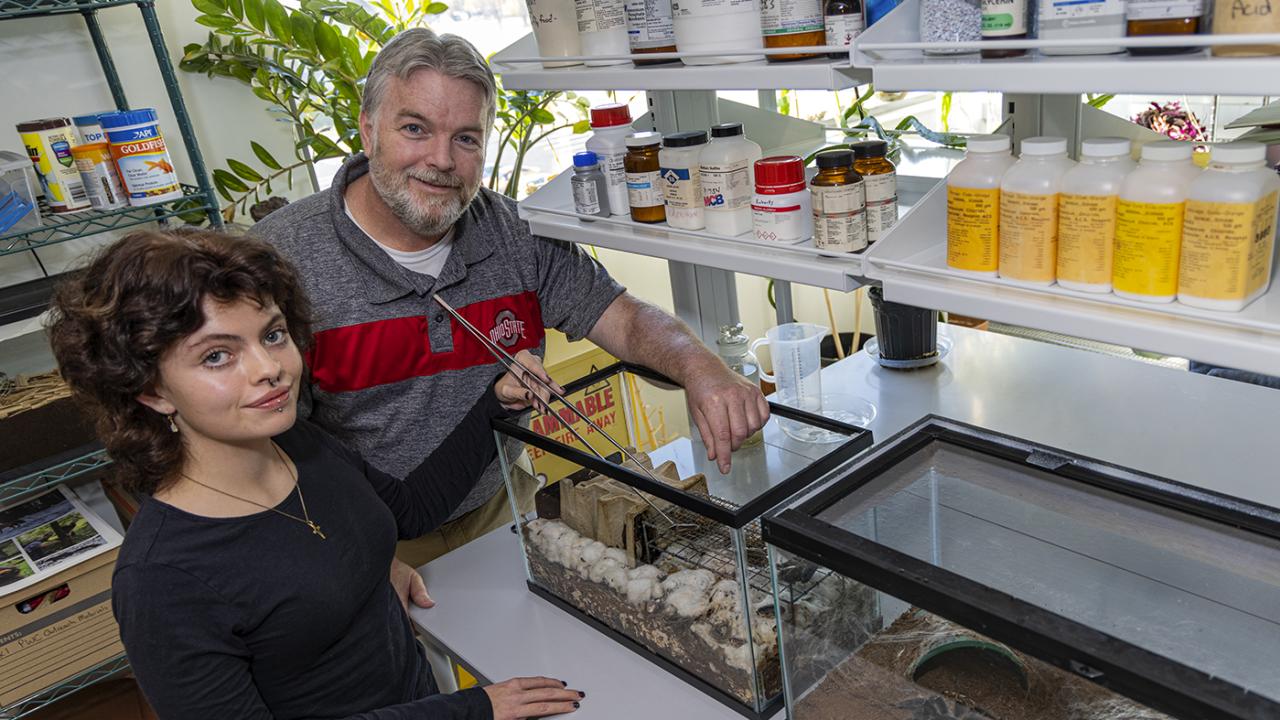Whatever was the ultimate highlight of Hayne’s Lake Erie adventure as part of his participation in the Ohio Means Science (OHMS) STEM Scholars Program, it was enough to catapult him into a STEM education on solid footing — and with a firmly established support system already in place.
“I was so worried about being by myself, coming to campus,” said Haynes, who hails from north Columbus. “But the OHMS program helped me. Not just being a trip for engineering, but it also builds a small community for everybody.”
Haynes is one of 13 students to participate in the inaugural OHMS STEM Scholars Program, which is made possible by a grant from the National Science Foundation (NSF). Students with financial need who plan to major in a STEM field can apply to be in the program and, if selected, will receive a scholarship of up to $10,000 per year for up to two years. They also participate in an immersive research retreat, such as the one at Stone Lab, at no cost.
The program is headed up by Associate Professor Andy Roberts, PhD, along with a group of faculty in various departments who help steer cohorts of students through the programming.
“There are significant barriers to participation in STEM fields, especially for underrepresented and economically underprivileged groups. Basically, the costs of doing science and participating in science present a huge barrier,” Roberts said. “So our idea (with OHMS) was to try and get funds together to help support them. To take off some of the financial burden of attending school — but more than that, to provide the underpinnings they need to succeed.”
Although only in its infancy, the program has already seen success in the eyes of its students like Haynes and Brianna Sinclair, who came away from the immersive retreat with a new appreciation for ecology and a best friend.
“We’re all a really good community now. We’re just a giant friend group, basically,” said Sinclair, a neuroscience major who aspires to pursue cancer research someday. “We all made a huge connection. It made me feel more comfortable coming to college because I didn’t know anyone, so it made me feel like I could actually do it.”
